By Harvey Weiner, National Commander
Each year the JWV National Commander flies across the pond to participate in a special Remembrance Day ceremony and parade with our British
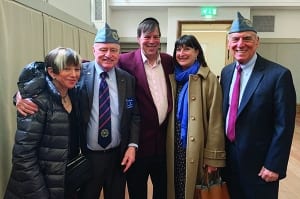
Linda Weiner, National Commander Harvey Weiner, Ritual Director Mickey Nathanson, his wife, and PNC David Magidson at the Saturday morning services of the West London Synagogue for British Jews.
counterpart organization, AJEX. The trip typically includes a stop in Brussels for a two-day briefing at SHAPE and NATO, but the organizers canceled that stop this year due to a visit by the U.S. Secretary of State.
I still went to the ceremony in London, along with my wife Linda, Past National Commander David Magidson, and his wife Marilyn Mittentag.
The AJEX Annual Remembrance ceremony and parade takes place a week after the annual London Armistice Day parade and celebration. AJEX stands for the Association of Jewish Ex-Servicemen and is a remarkably active organization, considering Great Britain has not been involved in any major wars since World War II. More than 1,000 people marched in the parade, and an equal number of spectators lined the parade route. Considering there are only about 260,000 Jews in all of Great Britain and 158,000 Jews in London, this attendance is noteworthy. It appears all sections of the Jewish community are supportive of AJEX.
The ceremony took place at the Cenotaph near Westminster in the center of London. During the ceremony I laid a wreath of poppies in honor of the U.S. forces who served in all theaters of war. There were also representatives from France and Israel. Linda and Marilyn escorted Renee Salt, a Bergen-Belsen and Auschwitz survivor and prominent speaker about the Holocaust.
Prior to the parade, we attended a reception at the Institution of Civil Engineers headquarters, where I spread JWV’s message to everyone at each of the more than 20 tables. After the parade, the new AJEX commander hosted a dinner.
The day after the parade we toured the new American Embassy with a three-person briefing team. The leader was a Jewish Department of Defense Attaché who served as a Rear Admiral. I hope he and another one of the Jewish briefers will join JWV.
With the assistance of new JWV National Chaplain Rabbi Mark Winer, two new events were added to the London trip. The day before the parade we attended services at the West London Synagogue of British Jews, the largest Reform synagogue in Great Britain. Winer served as the rabbi there for more than a decade before his retirement.
The morning of our visit to the Embassy, we met with the David Sumberg at the Jewish Museum of London. David is a Jewish ex-member of Parliament and shared his knowledge about the status of Jews in Great Britain.
This trip is helpful in spreading the messages of JWV and enhancing relationships with Jewish veterans from other nations. I hope to complete the Brussels part of the excursion at a future date.
Volume 73. Number 4. 2019
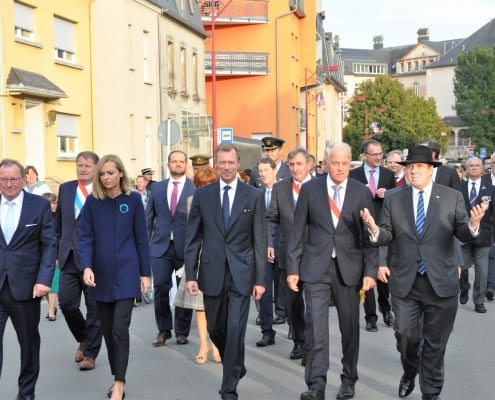
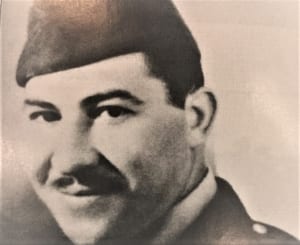
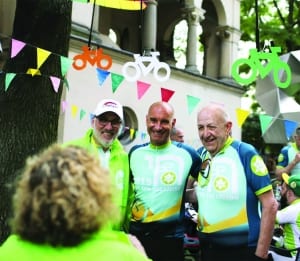
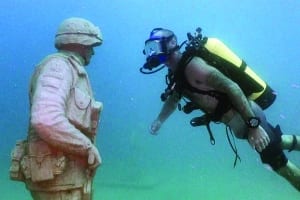
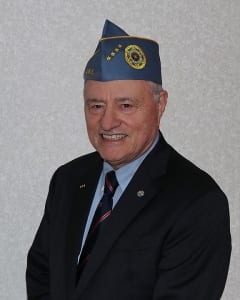 The Jewish War Veterans of the USA is delighted to announce that Harvey Weiner
The Jewish War Veterans of the USA is delighted to announce that Harvey Weiner
